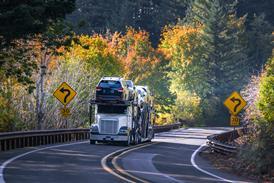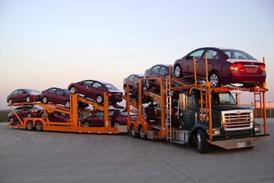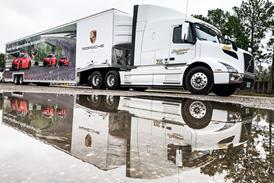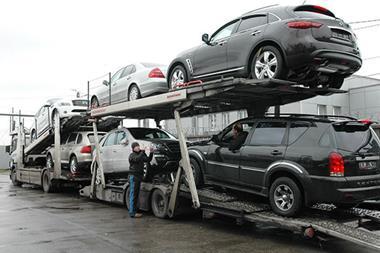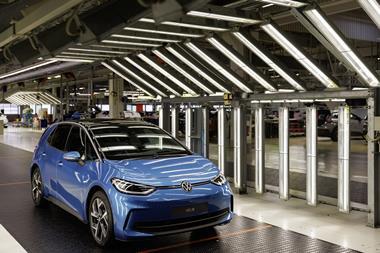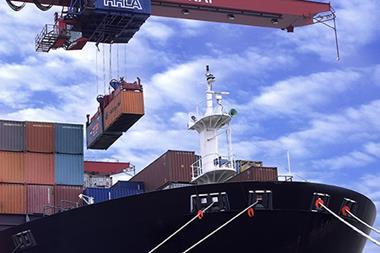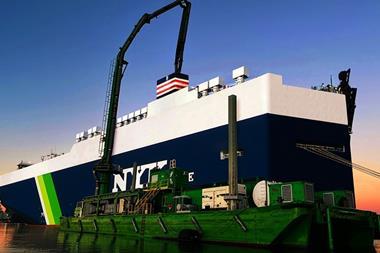We should celebrate the breaking down of barriers in trade and business, not encourage their construction through stubborn rhetoric and isolationist policy.
 We may be re-entering an age of wall-building, whether towering in barbed-wire reality, or constructed by barricading political language. Often, such physical and rhetorical enclosures go together, cemented by tightened border and trade controls, and hardened by policy threats to build the ramparts wider and higher. While much of this talk is the bluster of campaigns or negotiations, a ‘no-man’s land’ still forms in which livelihoods and supply chains are threatened.
We may be re-entering an age of wall-building, whether towering in barbed-wire reality, or constructed by barricading political language. Often, such physical and rhetorical enclosures go together, cemented by tightened border and trade controls, and hardened by policy threats to build the ramparts wider and higher. While much of this talk is the bluster of campaigns or negotiations, a ‘no-man’s land’ still forms in which livelihoods and supply chains are threatened.
Donald Trump promises something “big and beautiful” for the US southern border, which he pledges to fortify by renegotiating NAFTA and slapping import tariffs on Mexican or Chinese-made products unless US plants are protected.
In parts of eastern and southern Europe, meanwhile, leaders such as Hungary’s Viktor Orban have beaten Trump to the soil with spades and pitchforks; after already erecting fences to keep out those fleeing warzones, Orban, with allies in Poland and the Czech Republic, pledges to defy the EU’s plan for allocating refugees. A referendum in Hungary over accepting future EU quotas on October 2nd was technically invalidated by low voter turnout, but Orban said that he would use the result – in which 98% voted against EU requirements – to reject future migrant requirements, even though Hungary has settled very few (most pass through the country on the way to Germany or Scandinavia). This resistance is despite the fact that the country – which has seen significant investment from Mercedes-Benz and Audi – suffers from a labour shortage after years in which many of its own citizens have migrated elsewhere in the EU, and could benefit from more workers.
Some member states are in turn calling for sanctions or even expelling Hungary from the Union for its treatment of refugees, although in reality the EU's refugee policy has largely become a non-starter.
Meanwhile, relations between Russia and Ukraine, have smouldered since Russia annexed Crimea and spurred unrest in eastern Ukraine; little but a pile of ashes is left of trade such as cars and parts between the countries. A mix of sanctions and threats are also smothering Russia’s trade with other neighbours, including the EU.
Britain, meanwhile, is becoming a multimodal barrier builder. After attempts by refugees from the so-called ‘Jungle’ camp near France’s port of Calais to enter lorries bound for the UK, the British government plans a wall 1km long on the road to the port to prevent illegal entries – a measure many critics think will only encourage more dangerous journeys. The wall appears to be going ahead despite plans by the French government to clear the Jungle by the end of this year.
More broadly, Brexit was, for some, a vote to turn the English Channel into a moat against open trade and labour. Though it depends on negotiations, there is a prospect of trade tariffs, barriers and visa restrictions between the UK and EU members. Britain could also forfeit more than 50 trade agreements facilitated by the EU with other countries, at least until it has negotiated its own, which will take years and may create as many barriers as it could clear.
The risk is not only that divisive language turns into policy – much of which would hurt logistics – but also that it interrupts broader relations in society and in business. By looking at their leaders, many may think there is more to gain in taking tough, ‘winner takes all’ stances than in working together.
Already, it is not just populists and strongmen hinting at walls. Hillary Clinton has said that, if elected, she will oppose the Trans-Pacific Partnership trade deal she helped negotiate – an agreement that would have eased exchanges between North America and parts of Asia. She has also hinted at renegotiating NAFTA. Leaders from France’s ruling Socialist party, Germany’s coalition partner Social Democrats and others across Europe have boasted of ending talks on the Transatlantic Trade and Investment Partnership between the EU and US.
No trade deal is perfect, and agreements signed decades ago should be updated. Likewise, trade shouldn’t be free at any cost; citizens on either side of the Atlantic and Pacific have concerns about what their governments agree on their behalf; such arrangements should be scrutinised. Free trade can spread prosperity – but free flowing goods and supply chains need to be secure and transparent if they are also to be trusted.
The writing on the wall
Perhaps we are showing our age, but Automotive Logistics would sooner celebrate the fall of walls rather than stand atop any new or existing ones. Our tagline makes that plain: ‘Breaking down barriers in the auto industry’s supply chain’. Clearly, that which stands in the way of exchanging goods, ideas or skills goes against this. We think executives and companies with influence should use it, and make sure policymakers and would-be leaders are aware of such concerns, whether ahead of elections or Brexit negotiations.
But barriers come in all forms. It is not just tariffs, customs documents or fences that hurt business; it happens when stakeholders hide behind enclosures, and eschew compromise or collaboration, be it over price, processes or technology.
Executives should thus avoid the examples of current political leaders. Candidates and incumbents brag that they will give voters something better because they (and they alone) will make partners accept an unequal deal: Trump with a wall Mexico will pay and suffer for; Britain by having access to European markets without accepting its rules; Poland and Hungary by blocking EU-sanctioned refugees but keeping their citizen’s rights to move freely across the Union.
Such threats conflate walls with impenetrable security, when they are more often thin layers of a bubble that can easily burst. In the real world, especially the fast-changing automotive supply chain, businesses need as much open exchange of material, financing and people as possible, whether to develop new technology or negotiate fairly. Dear readers, tear down those walls before many are even built.
Discussions around Brexit and supply chain flows for the UK and Europe will be discussed at the inaugural Automotive Logistics UK conference October 5-6th at Mercedes-Benz World in Brooklands, outside London.






